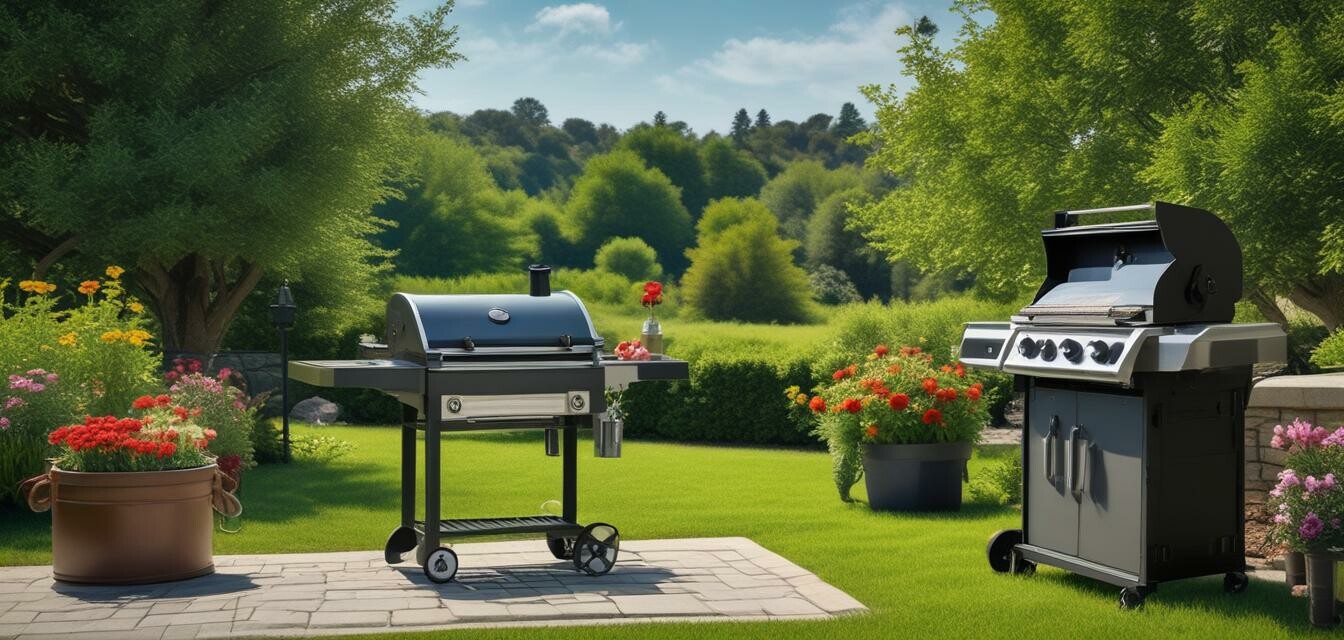
The science behind grilling: Why charcoal vs gas?
Key Takeaways
- Grilling using charcoal offers a unique smoky flavor that's hard to replicate with gas.
- Gas grills provide convenience, faster heating times, and easier temperature control.
- Each type has its own pros and cons, making them suitable for different grilling enthusiasts.
- Understanding the chemistry of grilling can enhance your outdoor cooking experience.
Grilling is an art, but it's also a science. Whether you're preparing a backyard barbecue or a weekend gathering, the choice between using a charcoal grill or a gas grill can significantly influence the flavor and cooking process of your dishes. In this article, we’ll explore the science behind these two popular grilling methods, discussing their respective pros and cons to help you make an informed decision.
The basics of grilling: Charcoal vs Gas
Understanding the basic properties of charcoal and gas will provide you with insights into which method may work best for your grilling needs. Below is a brief comparison of the key characteristics:
| Feature | Charcoal Grills | Gas Grills |
|---|---|---|
| Heating time | Longer: 20-30 minutes | Shorter: 10-15 minutes |
| Flavor | Smoky and rich | More neutral, less smoky |
| Temperature control | More challenging | Easier with knobs |
| Ease of use | Requires more effort | User-friendly |
| Maintenance | Requires cleaning ash | Occasional grill cleaning |
| Cost | Generally lower upfront cost | Higher upfront cost, lower fuel cost |
Diving deep into charcoal grilling
Charcoal grills have been a favorite among traditionalists for generations. Here are some reasons why:
- Unique flavor: Charcoal creates a distinct smoky taste that enhances food flavor and is hard to achieve with gas.
- Higher temperatures: Charcoal grills can reach higher temperatures, ideal for searing meats.
- Affordability: Generally, charcoal grills are more affordable compared to gas grills.
Considerations for charcoal grilling
While there are many benefits, charcoal grilling does come with its own set of challenges, such as:
- Longer preparation: Charcoal takes time to heat up properly, so you'll need to plan ahead.
- Temperature control: Maintaining consistent temperatures can be tricky, requiring experience.
- Clean-up: Disposing of ash and debris can be cumbersome after grilling sessions.
Exploring gas grilling
Gas grilling offers convenience that many users appreciate. Here are some benefits of using gas:
- Convenience: Quick to ignite and easy to operate with simple knobs for temperature adjustments.
- Less mess: No coal cleanup, meaning easier post-grilling chores.
- Consistent heat: Provides consistent temperatures, making it easier for beginners.
Points to ponder about gas grilling
On the flip side, gas grilling isn’t without its drawbacks:
- Flavor limitations: May not provide the same authentic smoky flavor as charcoal.
- Cost: Initial investments can be higher compared to charcoal grills.
- Fuel dependence: Requires a constant supply of propane or natural gas.
Making the right choice for your grilling needs
The decision between charcoal and gas grilling boils down to personal preferences and cooking style. Here are a few guidelines to help you decide:
Tips for choosing the best grill for you
- If you're after flavor and don’t mind spending time prepping, go for charcoal.
- If convenience and speed are your jam, opt for gas grilling.
- Consider your available space: Gas grills may require a more complex setup.
- Budget is important; charcoal grills are generally more wallet-friendly.
Conclusion
In summary, both charcoal and gas grills have distinct advantages and disadvantages. The best choice for you will depend on your personal preferences, cooking habits, and how much time you are willing to invest in the grilling process. If you'd like to explore more about how to enhance your grilling skills, check out our Tips and Techniques segment.
Pros of charcoal grilling
- Unique smoky flavor
- Capable of high temperatures
- Generally more affordable
Cons of charcoal grilling
- Longer heating time
- Trickier temperature control
- Cleaning up ash can be a hassle
Pros of gas grilling
- Quick and easy to use
- Less mess and simpler cleanup
- Consistent temperature control
Cons of gas grilling
- Less smoky flavor
- Higher initial cost
- Requires consistent fuel supply
Ultimately, each method has its rightful place in the nose-to-tail process of grilling. Regardless of your choice, the joy of grilling remains an experience worth savoring. For more insights into different types of outdoor cooking equipment, explore our categories on Charcoal Grills, Gas Grills, and Swing Grills.